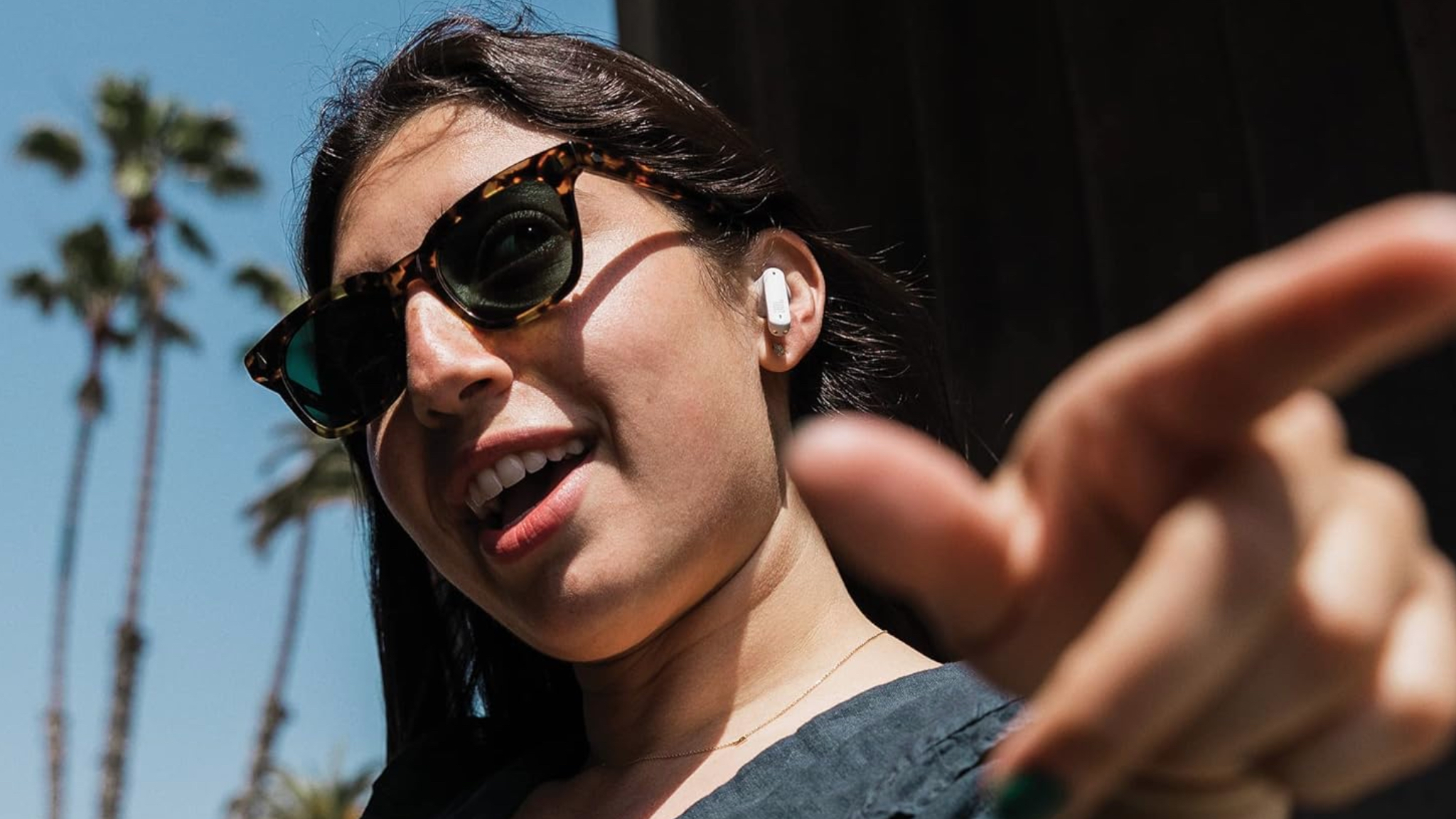Samsung Galaxy Watch Ultra vs. Apple Watch Ultra 2: Which should you buy?
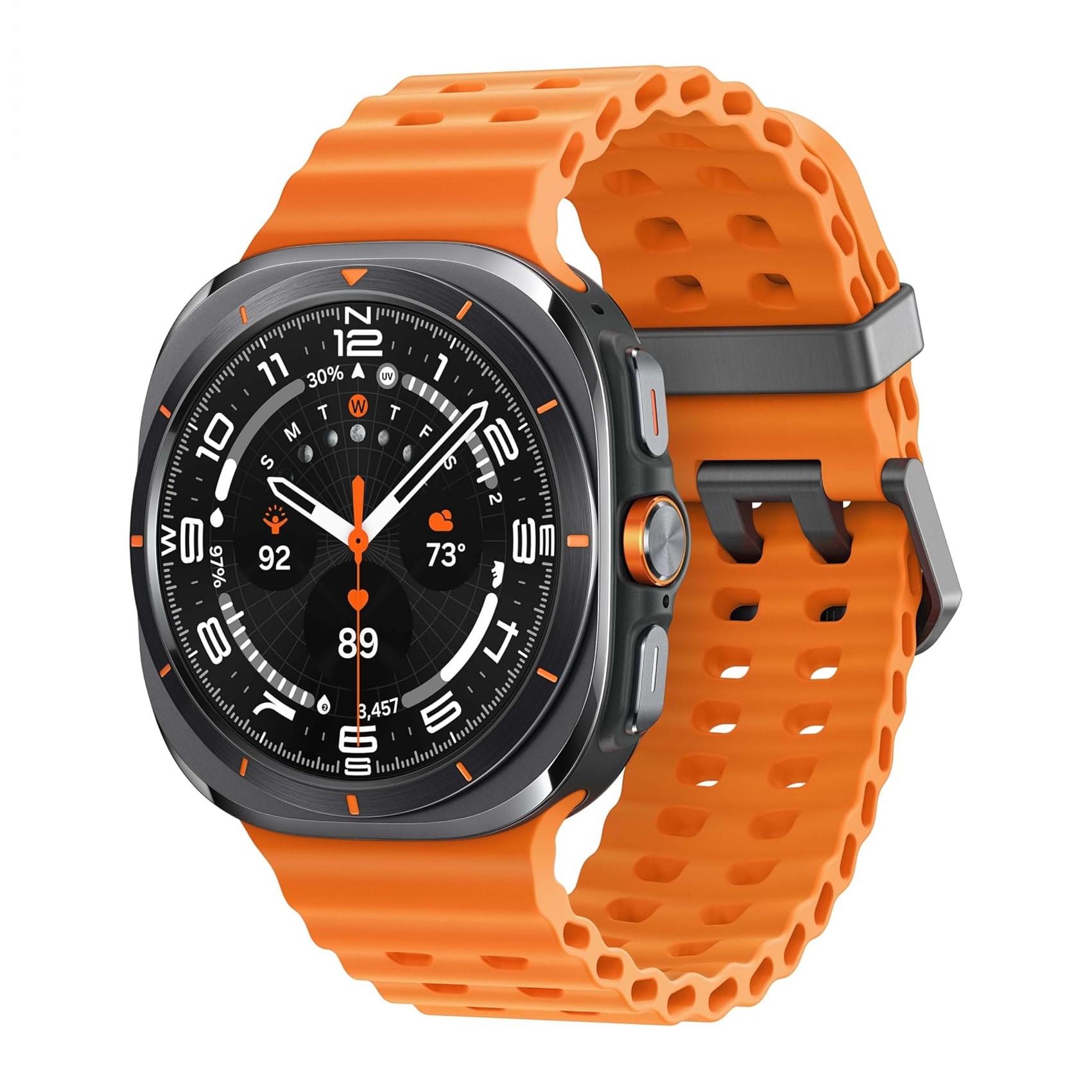
From another Galaxy
Samsung took a different approach with its latest lineup of smartwatches, ditching the "Classic" in favor of the Ultra. Now, this resides at the top of the lineup, offering an incredible set of features that only one other smartwatch can rival.
Pros
- The most powerful Wear OS smartwatch
- Unique and rugged design with a Titanium case
- Less expensive
- More robust health and fitness tracking
- Rated for up to 100 hours of battery life
Cons
- Not rated for deep-water diving
- Some features limited to only Samsung devices
- No iOS compatibility
- Only one size
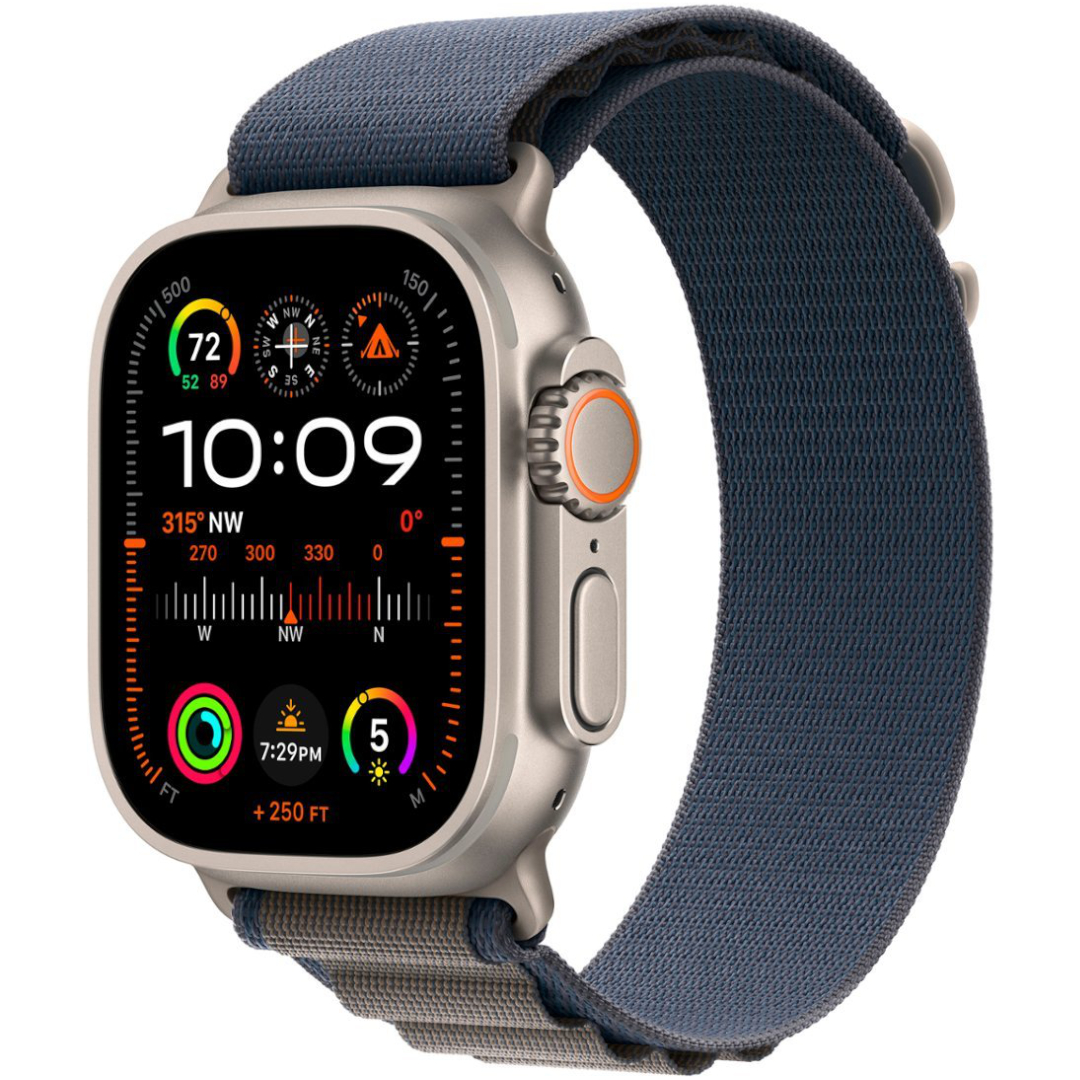
The measuring stick
Apple proved that there's enough of a market for a rugged smartwatch by releasing a second iteration. In doing so, it's opened the door for competition, as Samsung is hoping that it can do enough to drop the Apple Watch Ultra 2 down a peg or two.
Pros
- Officially rated for deep-water diving
- Rated for up to 72 hours of battery life
- Ultra-rugged design via Titanium casing
- Better developer support with watchOS
- Larger screen
Cons
- Still only works with iOS
- More expensive
- Only one color and size option
We can't help but feel as though it was just a matter of time before Samsung released a competitor to the Apple Watch Ultra. However, instead of doing so last year to coincide with Apple's second iteration, the Galaxy Watch Ultra made its debut in July 2024.
These are two massive smartwatches aiming to help shape the future of wearables. Well, at least for those who need an extremely rugged and durable smartwatch packed to the gills with health and fitness tracking features.
Samsung Galaxy Watch Ultra vs. Apple Watch Ultra 2: Design
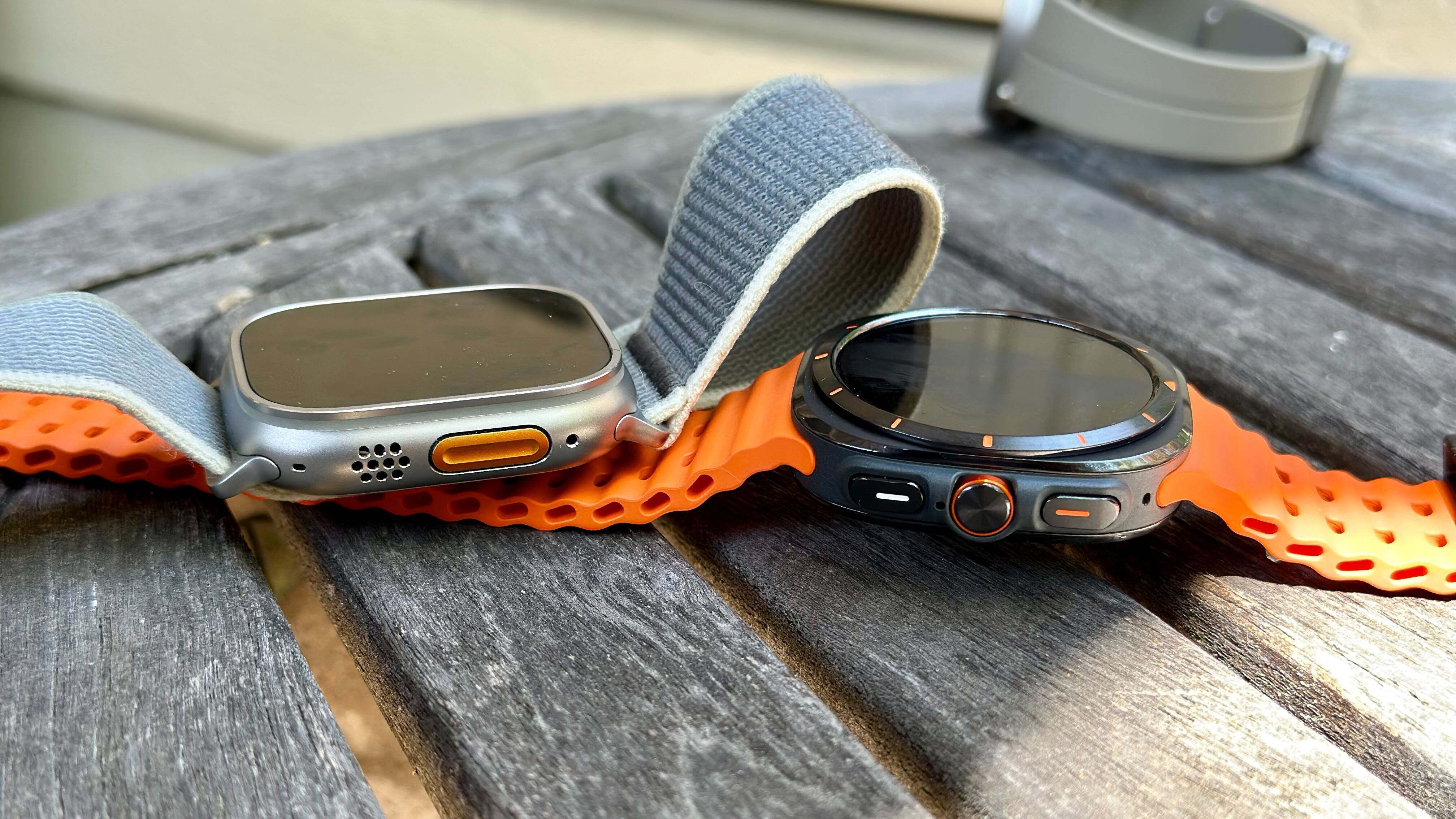
At first glance, it feels fairly obvious where Samsung drew inspiration for the design of the Galaxy Watch Ultra. However, when you look a bit closer, the "squircle" case is familiar to everyone who has ever used a Samsung smartphone. Unlike the Apple Watch Ultra 2 with its rectangular screen, the Galaxy Watch Ultra sticks with a circular display.
The Watch Ultra 2 does gain a quick advantage versus the Galaxy Watch Ultra, as it sports a 1.9-inch OLED screen. By comparison, Samsung uses a 1.5-inch Super AMOLED display for its latest wearable.
Having a smaller screen, also means that Samsung is able to offer a heavy-duty smartwatch that's lighter than you'd expect. The Galaxy Watch Ultra weighs 60.5g, almost a full gram under the 61.4g from Apple's wearable. It might not seem like much, but could play a part in the final decision.
In terms of protection, it's pretty much the same across the board. Both the Galaxy Watch Ultra and Apple Watch Ultra 2 utilize a Titanium casing, with Sapphire Crystal protecting the display.
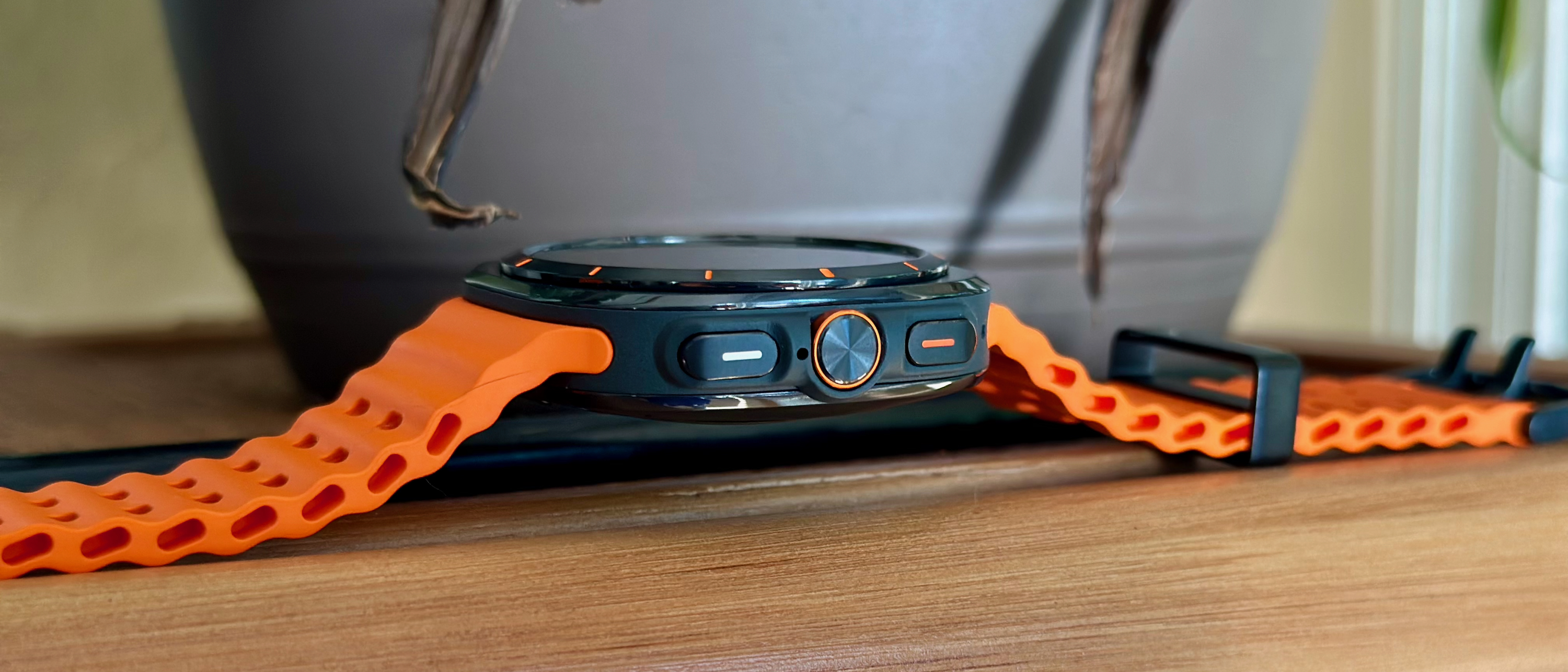
Both smartwatches also sport a 10ATM water resistance rating to meet the MIL-STD-810H spec. However, despite this and the IP68 rating, the Galaxy Watch Ultra lacks the official EN13319 standard for it to be used as a wearable dive computer. It is available with the Apple Watch Ultra 2 and was one of the points Apple drove home when introducing the original Watch Ultra.
Get the latest news from Android Central, your trusted companion in the world of Android
To some, Samsung disappointingly ditched its rotating bezel, something that would've instantly given the Galaxy Watch Ultra a leg up on the competition. So when it comes to navigation, we have the touch screen along with a trio of buttons on the right side, which includes a rotating crown with an orange accent.
Apple also includes two buttons and a rotating crown. The difference here is the "Action Button" that sits by its lonesome on one side, while the rotating crown is joined by the "Side Button" on the other.
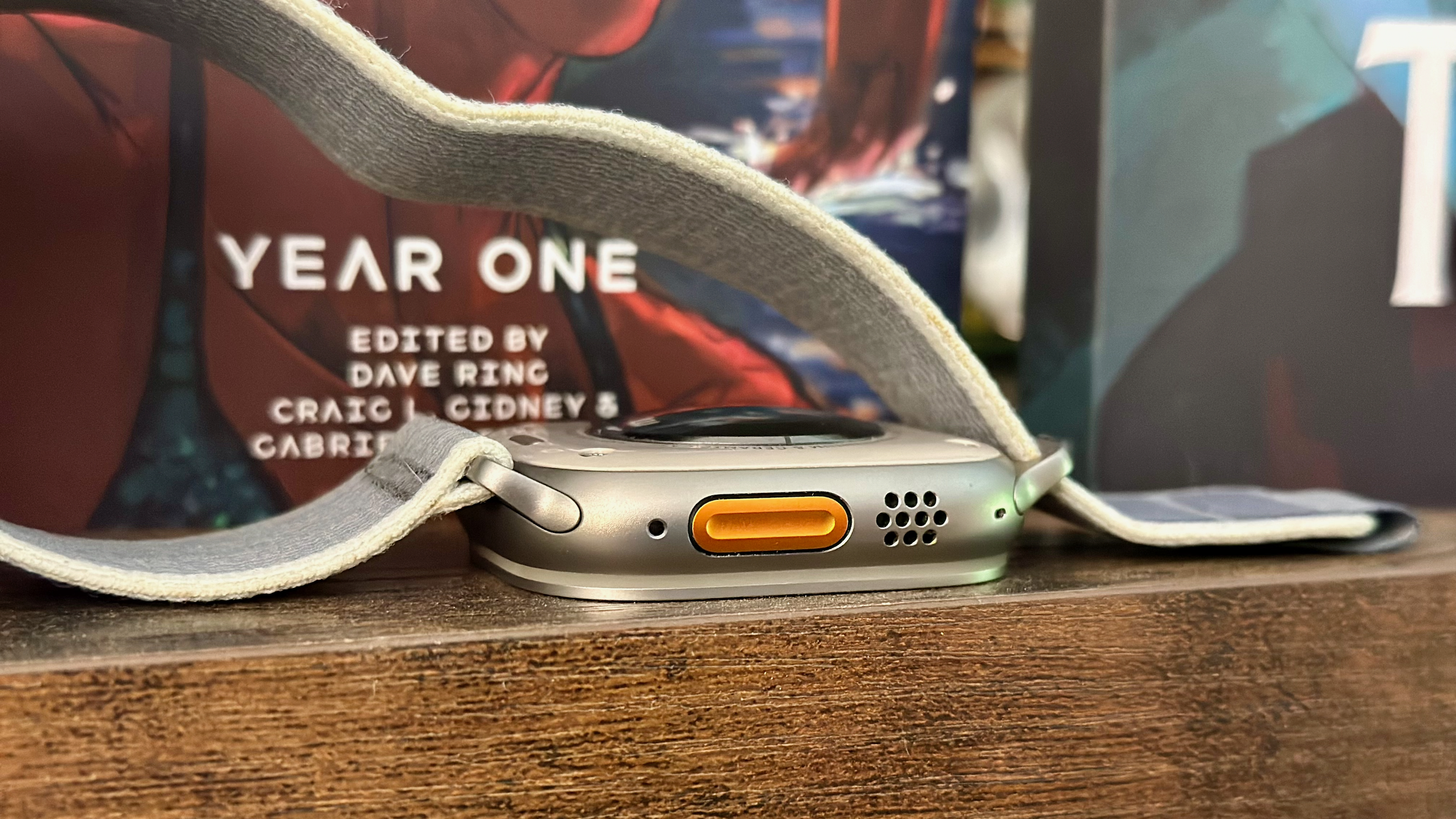
As seems to be tradition, both Samsung and Apple introduced all-new watch bands when these respective wearables were announced. Samsung made the surprising decision to utilize a brand new dynamic lug system, which looks pretty great, no matter what band you use.
There is a catch, however, as this new mechanism means that you can't use bands from the Galaxy Watch 7 or older Samsung smartwatches. This is something Apple managed to avoid, as the Watch Ultra 2 uses the same band mechanism as the other Apple Watch models. The only difference here is that you won't be able to use the smaller 40mm bands, and instead have to stick to either 45mm or 49mm bands.
Samsung Galaxy Watch Ultra vs. Apple Watch Ultra 2: Hardware and specs
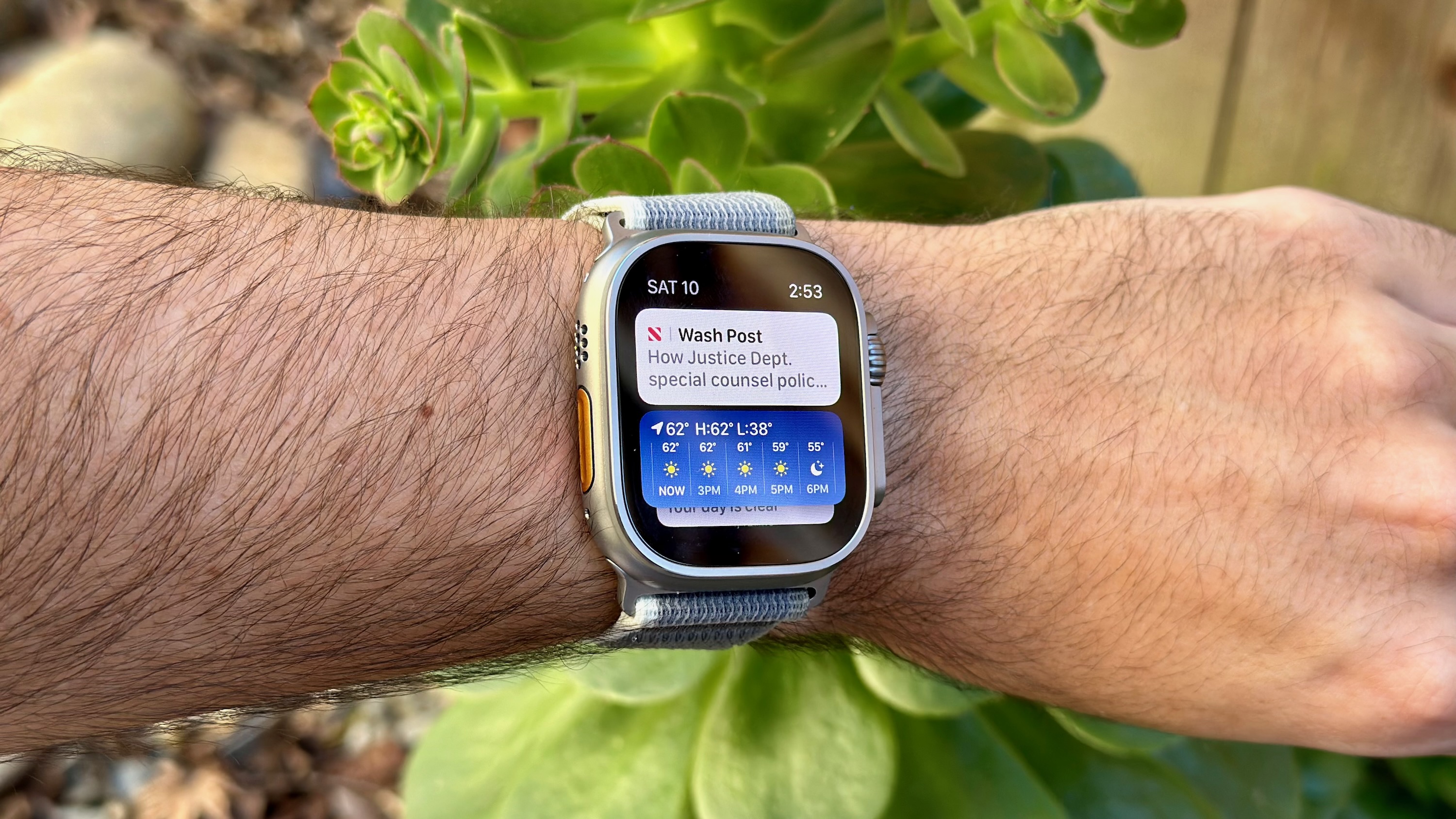
As mentioned previously, the Apple Watch Ultra 2 is the larger of the two with a 1.9-inch OLED display, compared to the 1.5-inch Super AMOLED of the Galaxy Watch Ultra. Although the difference is enough to warrant a second look, those worried about being able to see the screen while outside can put those concerns to rest. Both of these wearables are capable of reaching up to 3,000 nits of peak brightness, which is just downright impressive.
Powering these smartwatches are two of the most powerful processors for wearables. Samsung's Exynos W1000 is paired with 2GB of RAM and 32GB of storage, whereas Apple's S9 SiP does the heavy lifting. And while the Watch Ultra 2 has just 1GB of RAM, it sports double the amount of storage, making it great for downloading music, apps, maps, and anything else to your wrist.
| Category | Samsung Galaxy Watch Ultra | Apple Watch Ultra 2 |
|---|---|---|
| Display | 1.5-inch Super AMOLED, 480x480, Sapphire Crystal | 1.92-inch (502 x 410, 338ppi) Retina LTPO OLED; 3,000 nits |
| Colors | Titanium Sliver, Titanium Gray, Titanium White | Titanium |
| Processor | Exynos W1000 | S9 SiP w/ 64-bit dual-core processor; 4-core Apple Neural Engine |
| RAM & storage | 2GB + 32GB | 1GB + 64GB |
| Battery | 590mAh | 564mAh |
| Software | One UI 6 Watch (Wear OS 5) | watchOS 10 |
| Sensors | Samsung BioActive Sensor (Optical Biosignal sensor+ Electrical Heart Signal + Bioelectrical Impedance Analysis), Temperature Sensor, Accelerometer, Barometer, Gyro Sensor, Geomagnetic Sensor, Light Sensor | HRM (passive AFib + high and low HR), ECG, skin + water temperature, water gauge, compass, altimeter, accelerometer, gyroscope, ambient light |
| Dimensions | 47mm: 47.1 x 47.4 x 12.1 mm | 49 x 44 x 14.4mm |
| Weight | 60.5g | 61.4g |
| Connectivity | LTE, Bluetooth 5.3, dual-band Wi-Fi, NFC, GPS(L1+L5), Glonass, Beidou, Galileo | LTE, Wi-Fi 4, Bluetooth 5.3, UWB, dual-frequency GPS, GNSS, Galileo, BeiDou |
| Durability | 5ATM + IP68, MIL-STD-810H | WR100, IP6X, EN13319, MIL-STD 810H |
| Price | $649.99 | $799 |
Battery life is one potential point of intrigue, as both of these smartwatches can truly last for multiple days on a single charge. With normal usage, the Galaxy Watch Ultra is rated to last for up to 60 hours, but that gets bumped up to 100 hours if using the built-in power-saving mode.
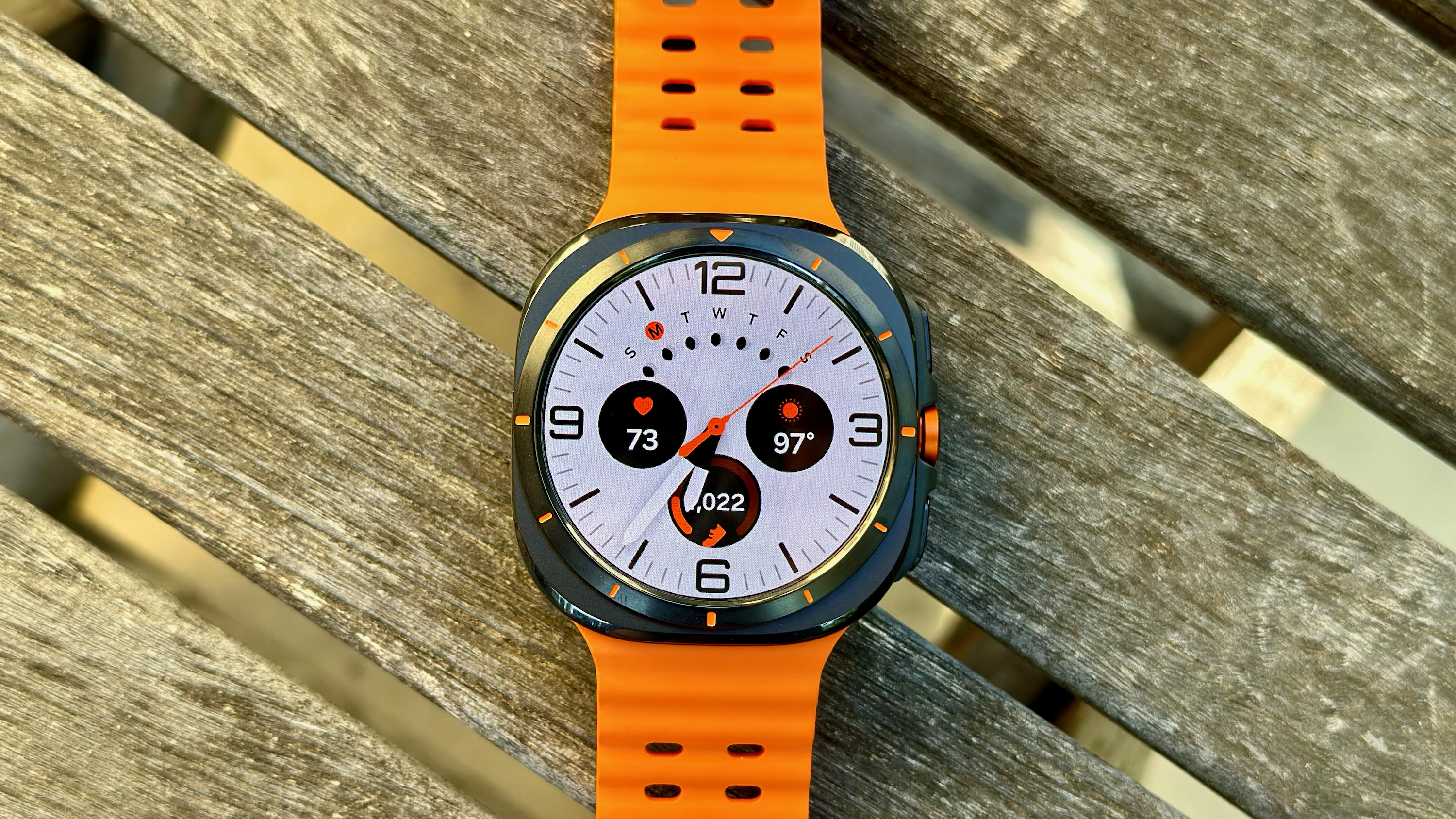
That's still incredibly impressive, as the Apple Watch Ultra 2 is rated for up to 36 hours of battery life with regular usage. With Apple's low-power mode enabled, this number gets doubled, totaling 72 hours of battery life on a single charge. However, both options fall quite a bit short of what Samsung claims is possible with the Galaxy Watch Ultra.
Lastly, you don't need to worry about differences in connectivity. Both the Galaxy Watch Ultra and Apple Watch Ultra 2 offer LTE, Bluetooth 5.3, Wi-Fi, NFC, and dual-band GPS(L1+L5).
Samsung Galaxy Watch Ultra vs. Apple Watch Ultra 2: Health and fitness
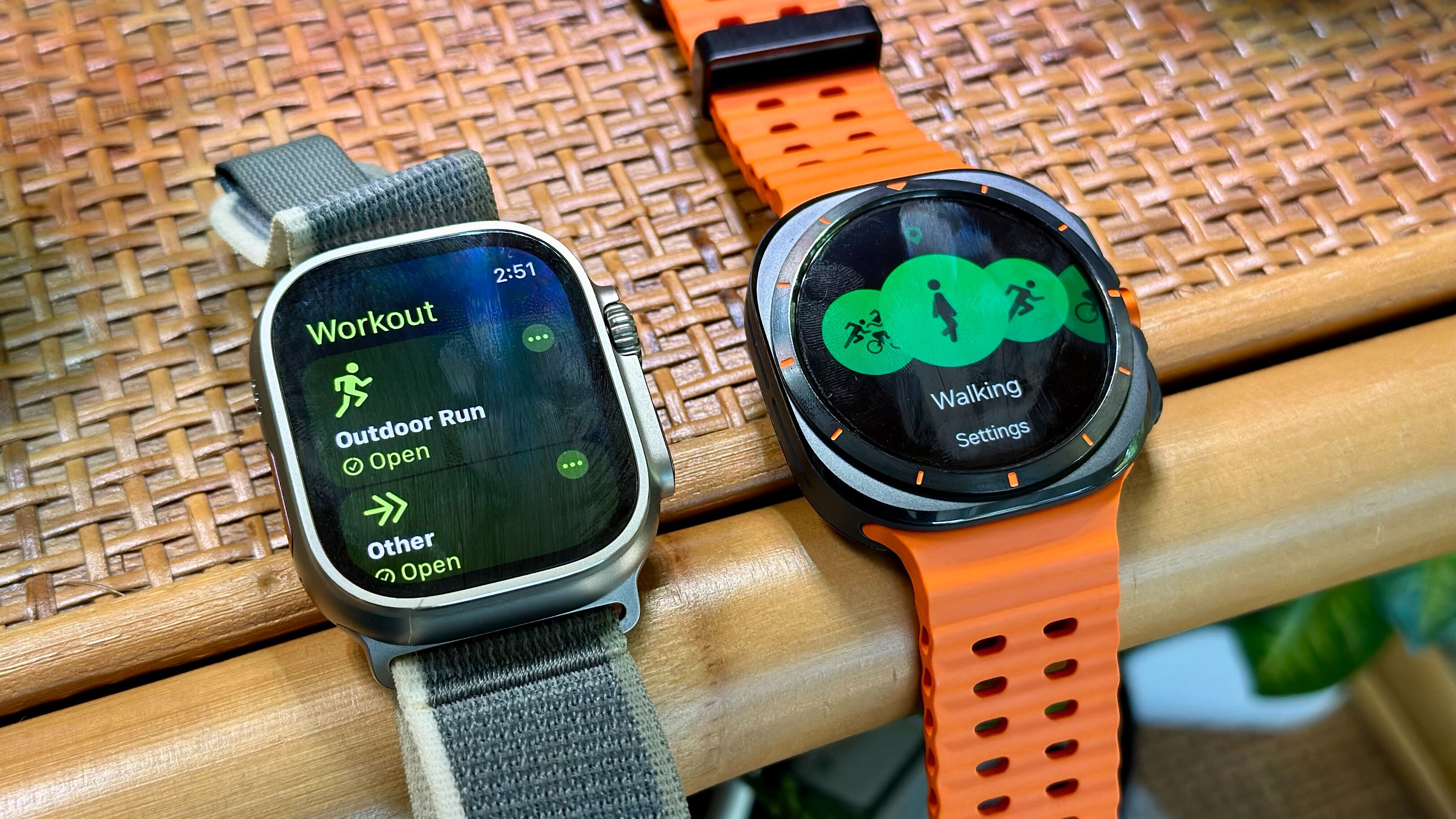
The Apple Watch has long been heralded as one of the best smartwatches for its health and fitness tracking prowess. Our resident fitness guru, Michael Hicks, even says that "the Watch Ultra 2 makes it tough to go back" to using other smartwatches. That's all despite Apple's ongoing patent dispute, which has led to the blood oxygen feature being removed until some type of resolution is met.
All the while, Samsung isn't dealing with any such issues, and actually introduced a few new features with the Galaxy Watch 7 and Watch Ultra. The biggest change comes in the form of a new BioActive sensor, offering more accurate readings.
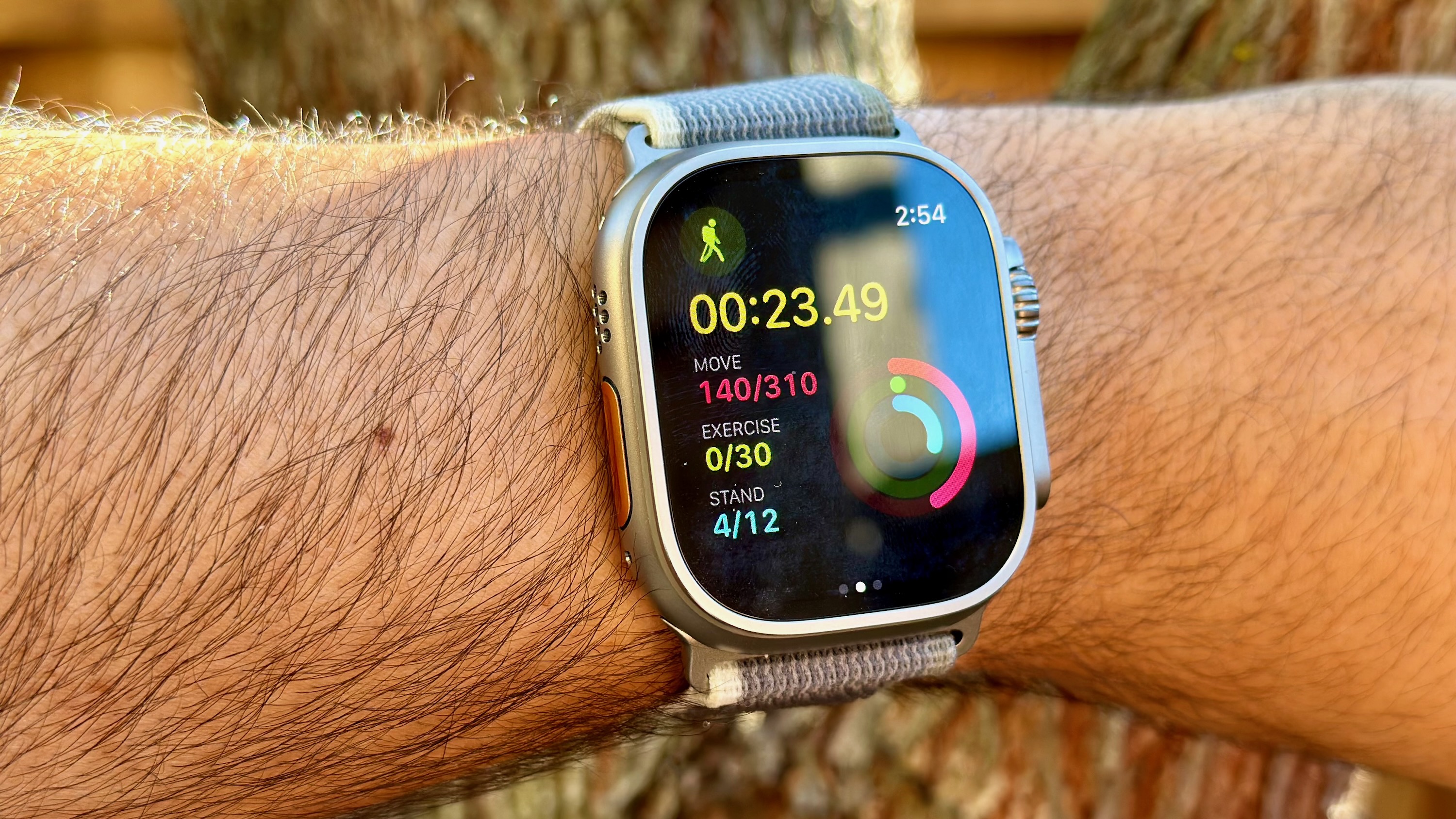
In addition to the new sensor, Samsung also introduced something we have yet to see on a smartwatch — sleep apnea detection. So long as your Galaxy Watch Ultra is paired with a Samsung phone, "users over the age of 22 can detect signs of "moderate to severe" OSA (obstructive sleep apnea)".
This was expected after Samsung gained FDA approval for the feature in February 2024. Apple has been rumored to be working on implementing similar functionality, but that has yet to come to fruition.
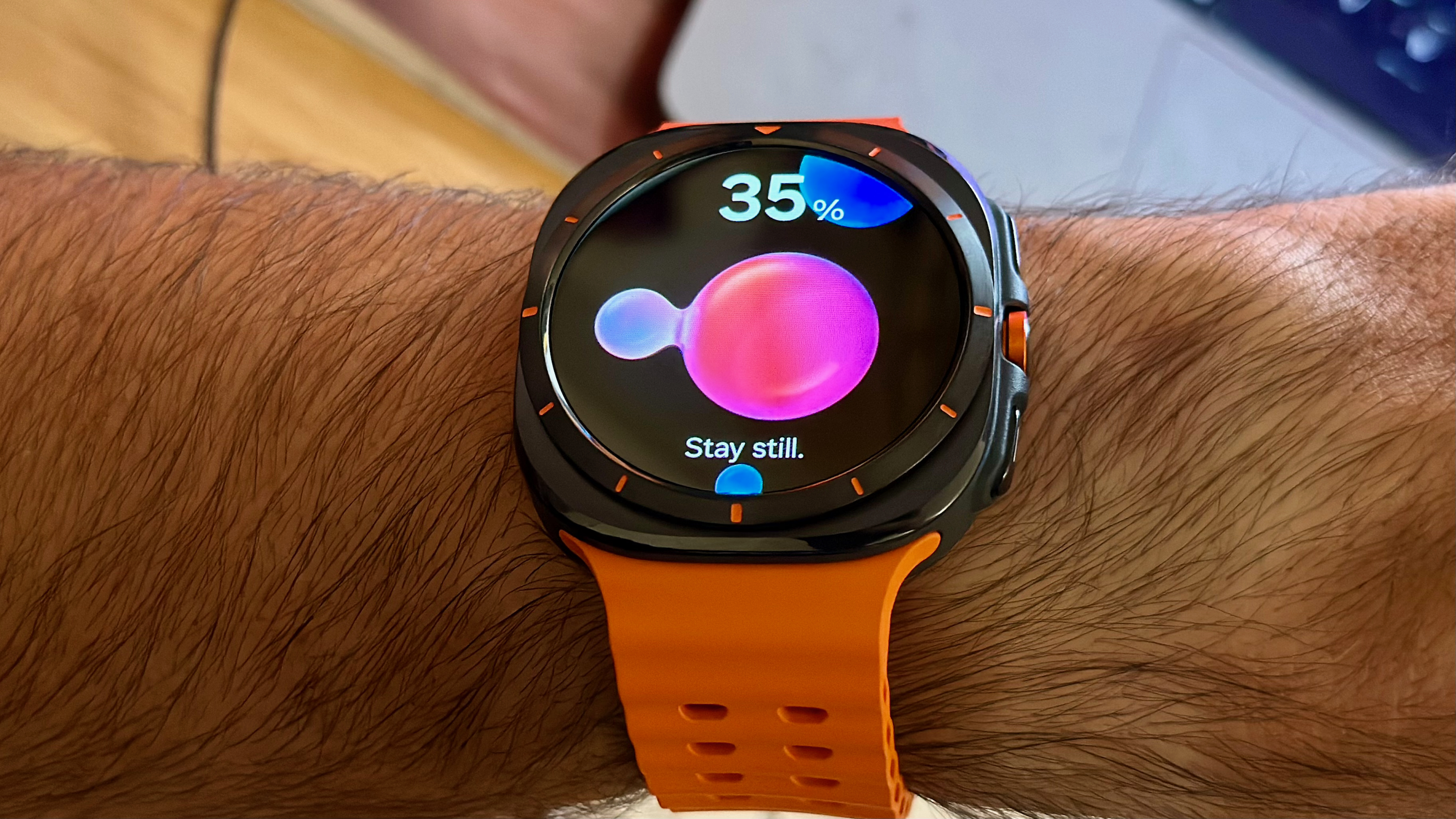
As for the actual sensors packed into these wearables, there's practically everything you could ask for, and more.
| Header Cell - Column 0 | Samsung Galaxy Watch Ultra | Apple Watch Ultra 2 |
|---|---|---|
| Health and Fitness | BioActive (Optical Heart Rate + Electrical Heart Signal + Bioelectrical Impedance Analysis) | HRM (passive AFib + high and low HR) and ECG |
| Row 1 - Cell 0 | Temperature Sensor | Skin + Water Temperature |
| Location and Activity | Geomagnetic Sensor | Water Gauge |
| Row 3 - Cell 0 | Compass | Compass |
| Row 4 - Cell 0 | Gyroscope | Gyroscope |
| Atmosphere | Barometer | Altimeter |
| Row 6 - Cell 0 | Accelerometer | Accelerometer |
| Row 7 - Cell 0 | Ambient Light Sensor | Ambient Light Sensor |
If you want to get a better idea of how the Galaxy Watch Ultra performs when it comes to health tracking, be sure to check out Michael's review.
Samsung Galaxy Watch Ultra vs. Apple Watch Ultra 2: Which is right for you?
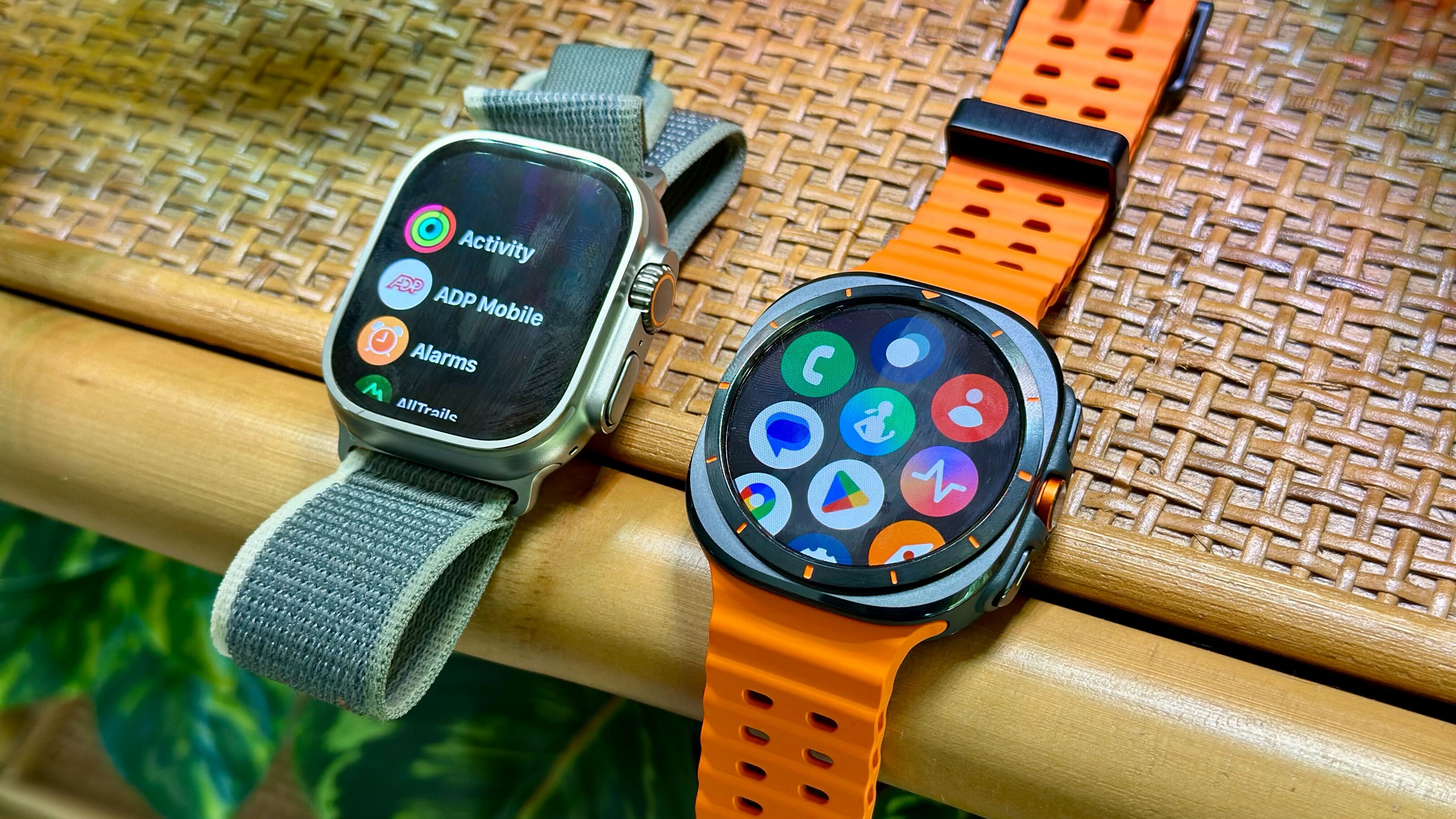
When it comes to making a final decision comparing the Galaxy Watch Ultra vs. Apple Watch Ultra 2, there is one obvious consideration to be made. Simply put, you can't use Samsung's watch with the iPhone, and the Apple Watch won't work with Android. Needless to say, unless you're willing to change smartphones, you're better off sticking within the confines of whatever platform you reside.
Putting that disclaimer aside, these are two of the best smartwatches that money can buy. But, you'll need to break out the checkbook as the Galaxy Watch Ultra comes in at $650. If that's already too expensive, then you won't even want to consider the Apple Watch Ultra 2 and its $799 price tag.
The designs are similar enough that this probably doesn't play too much of a role in making a final decision. Instead, it will come down to whether you find a benefit in Samsung's updated BioActive sensor and the FDA-approved sleep apnea detection.
There's also an elephant in the room, as we could just be a couple of months away from a third iteration of the Apple Watch Ultra. Besides that, we don't really think there's a "right" or "wrong" choice. Samsung and Apple have done an incredible job with these smartwatches, and little quirks aside, they are both excellent health-focused accessories.
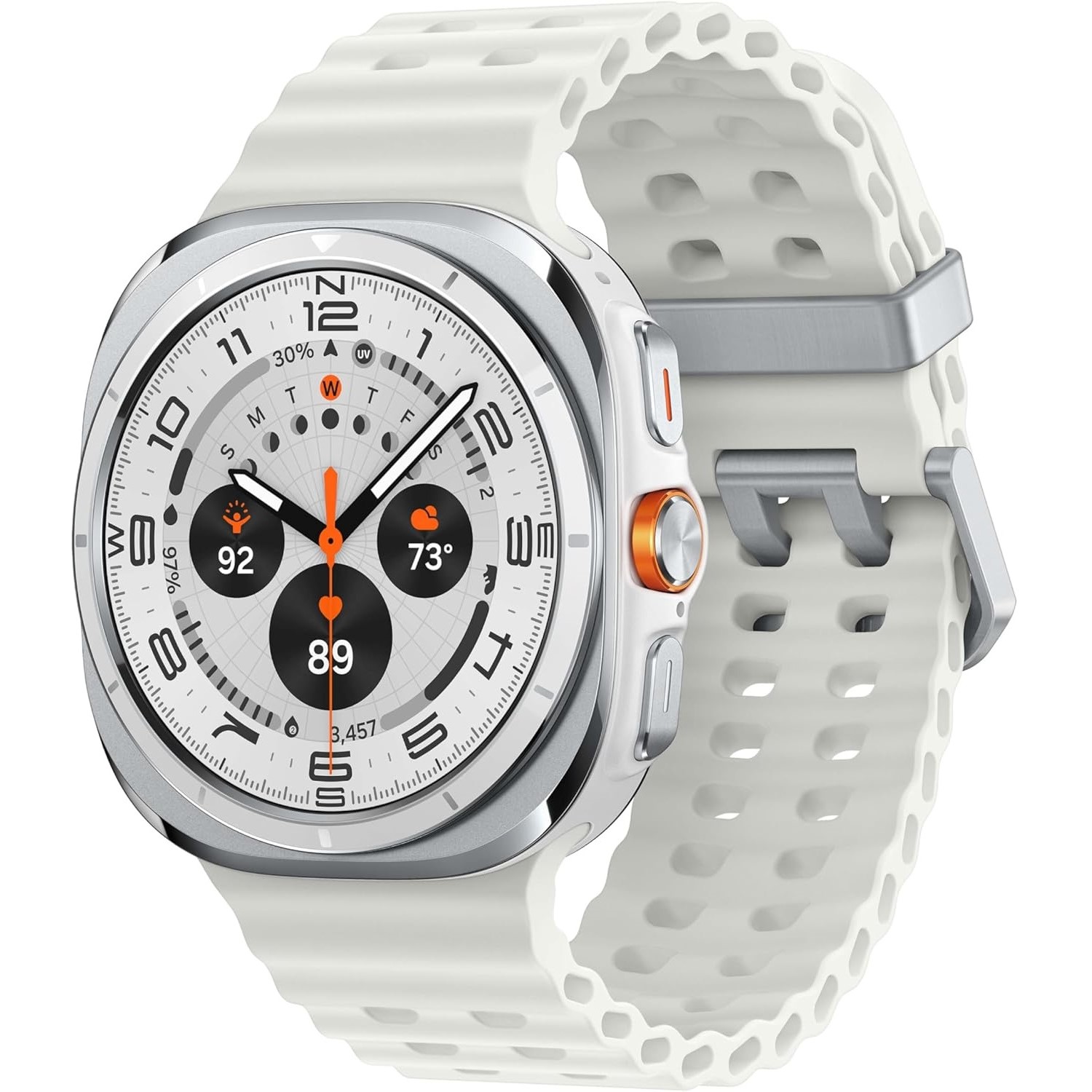
All that and a bag of chips
Although much of the focus is on the Galaxy Ring, Samsung's Galaxy Watch Ultra might just be even more impressive. It packs a wide variety of health and fitness tracking sensors, while managing to beat Apple to the punch with one surprising inclusion.

Polished and boring-ish
Although the Apple Watch Ultra 2 is an incredible piece of hardware, it suffers from the same issue as some of Apple's other devices. There are a boatload of great features, however, watchOS is getting a bit long in the tooth and that's apparent even on the Watch Ultra 2.

Andrew Myrick is a Senior Editor at Android Central. He enjoys everything to do with technology, including tablets, smartphones, and everything in between. Perhaps his favorite past-time is collecting different headphones, even if they all end up in the same drawer.
You must confirm your public display name before commenting
Please logout and then login again, you will then be prompted to enter your display name.
